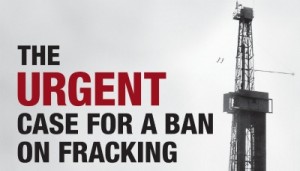Alrededor del 13 octubre, más de 70 grupos de seis continentes participarán en el Día Global de Acción Gasdown-Frackdown, mostrando una lucha unitaria contra la industria del gas, del fracking y petroquímica.
Se están organizando acciones en Norteamérica, América del Sur, África, Europa, Asia y Oceanía.
El Gasdown-Frackdown conecta luchas internacionales contra el gas y el fracking, incluyendo una acción de victimas de lodos tóxicos originados por extracción de gas en Indonesia, una manifestación en Australia Occidental, teatro callejero en Ámsterdam, una manifestación en Nigeria, un webinario sobre los impactos sobre la salud de la producción de gas y un carnaval anti-fracking en Reino Unido. Incluye también la lucha contra la contaminación por plástico conectada a los combustibles fósiles y el fracking. Exigimos reales soluciones para nuestro clima – las personas y el clima no aguantan una generación mas de combustibles fósiles.
Miles de personas por todo del mundo sufren los impactos de infraestructuras gasísticas impuestas agresivamente sobre las comunidades locales. Con frecuencia no se respeta la democracia local, se anulan derechos sobre las tierras, se envenenan fuentes de agua y se contamina el medio ambiente. Todo esto con el falso pretexto que el gas es una solución para nuestro clima, un combustible necesario a medio plazo. Sin embargo, considerando la cadena completa de suministro, el gas no es un combustible más limpio que el petróleo o el carbón.
Además, la industria del gas/de la petroquímica aumenta el uso del gas obtenido vía fracking para la producción de plástico, creando un ciclo de contaminación devastador para el medio ambiente, nuestros océanos y el clima. Se están destinando enormes cantidades de dinero público, inversiones privadas y apoyo político hacia la industria del gas, empeorando el cambio climático y elevando el riesgo de sobrepasar importantes puntos de inflexión climáticos. También contribuye a agravar la asfixiante contaminación por plástico a escala global, limitando la apuesta por la eficiencia energética y las energías renovables.
En torno al 13 octubre, comunidades en todo el mundo organizarán acciones descentralizadas, exigiendo un futuro sin combustibles fósiles y soluciones reales.
Contactos:
Frida Kieninger, Food & Water Europe, [email protected], Tel.: +32 487 2499 05
Kjell Kühne, Gastivists, [email protected], Tel.: +52-1-9671053425
Notas:
Página Web de Gastivists:https://gasdown-frackdown.org/
Página Web de Food & Water Europe: https://www.foodandwatereurope.org/



